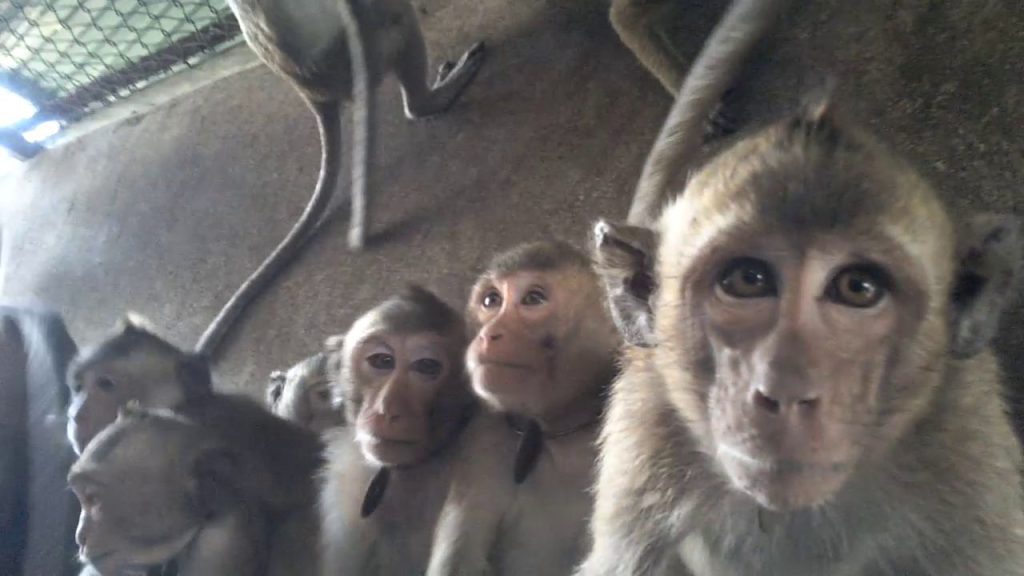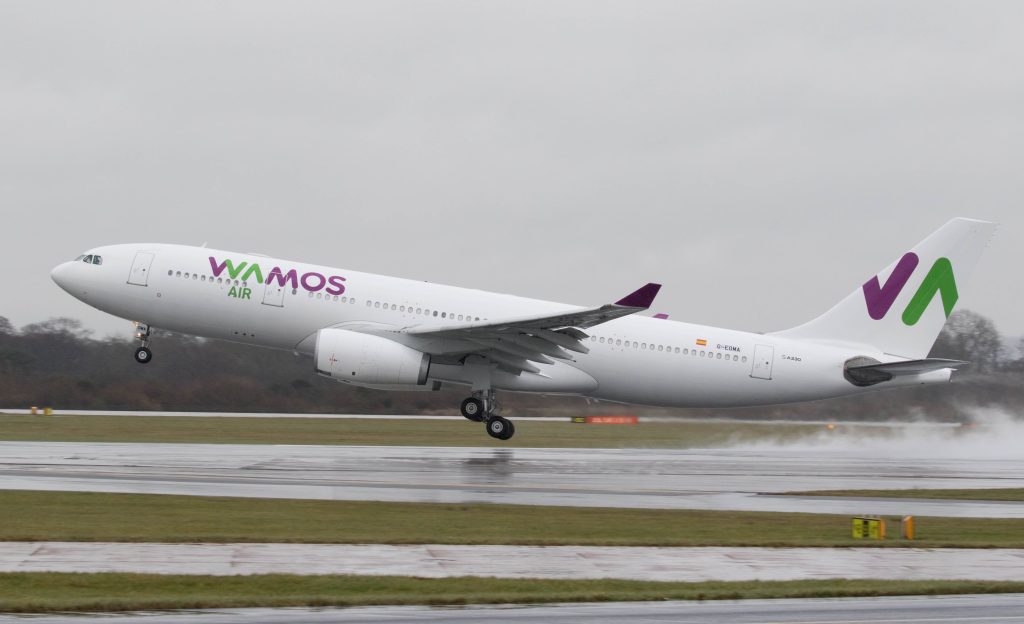Animal Protection groups are calling on the Spanish holiday charter airline, Wamos Air, to immediately stop transporting monkeys for research laboratories following the tragic deaths this week of several monkeys on board its flight from Cambodia to the US.
The tragedy began Sunday 14th November. According to a tip-off received by a concerned person in Madrid, Wamos Air transported 720 long-tailed macaques as cargo on Flight EB998 from Cambodia (PNH) to Houston (IAH) (AWB 46090129060). The ordeal suffered by these monkeys included confinement inside small transit crates for 24 hours of flying time, with an additional six hour stop-over in Tbilisi, Georgia, which included a three hour delay. In addition, many hours would have been spent in transit to and from the airports.
In recent months, animal protection groups Action for Primates (UK), One Voice (France) and Stop Camarles (Spain), have spearheaded a campaign across Europe calling on Wamos Air to stop transporting monkeys after discovering the Madrid-based airline was flying thousands of monkeys to the US for research.
Sarah Kite, Co-founder of Action for Primates, stated: ”This tragedy exposes the shocking reality of the suffering inherent in the transportation of these intelligent and sentient beings. It is simply not possible to confine non-human primates to small crates, away from familiar surroundings, and transport them on long journeys across the world without causing considerable distress, physical and psychological suffering. This is an issue that attracts widespread public concern, and it is time for Wamos Air to join the long list of airlines that now refuse to be a part of the cruel global trade in monkeys for research.”
”We know that deaths occur on airlines flying monkeys for research, but details are rarely publicised. This shocking and heartbreaking incident on board a Wamos Air flight is a stark reminder of the very real suffering involved in the global trade and transportation in non-human primates for research.”
The long-tailed macaque (Macaca fascicularis) is the most heavily traded non-human primate species for the global research and testing industry, with the US being one of the world’s largest importers and users of non-human primates for research. In 2020, imports of long-tailed macaques from Cambodia by the US increased by 82.8% – from 8,571 in 2019 to 15,664 in 2020.
Wamos Air, formerly Pullmantur Air, primarily operates passenger charter flights to holiday destinations, including in the Caribbean. It is a subsidiary of the Miami-based Royal Caribbean Group (formerly Royal Caribbean Cruises Ltd), the world’s second-largest cruise line entity, which operates Royal Caribbean International, Celebrity Cruises and Silversea Cruises.
During transportation, monkeys are held in small transit crates and travel as cargo. In addition to the cramped conditions, they may be forced to endure inadequate ventilation, unfamiliar and loud noises, temperature and humidity fluctuations and delays en-route. Monkeys may become ill or die in transit, as happened in this case. For others, anxiety and stress can lead to infections and the onset of disease which may remain latent until the animals reach their destination.
Action for Primates
Contact: [email protected]
https://actionforprimates.org/



As a punishment those that are responsable for this tragedy should be enforced to go through the same ordea. Mankind is evil.
Hi Dan,
Am conducting a research study on captive breeding of Cynomolgus or long tailed macaca in SE. Asia & would appreciate email contacts with any western/english speaking breeding farm managers/executives in Cambodia &/or Laos if you have.
Thanks Dan, much appreciated.